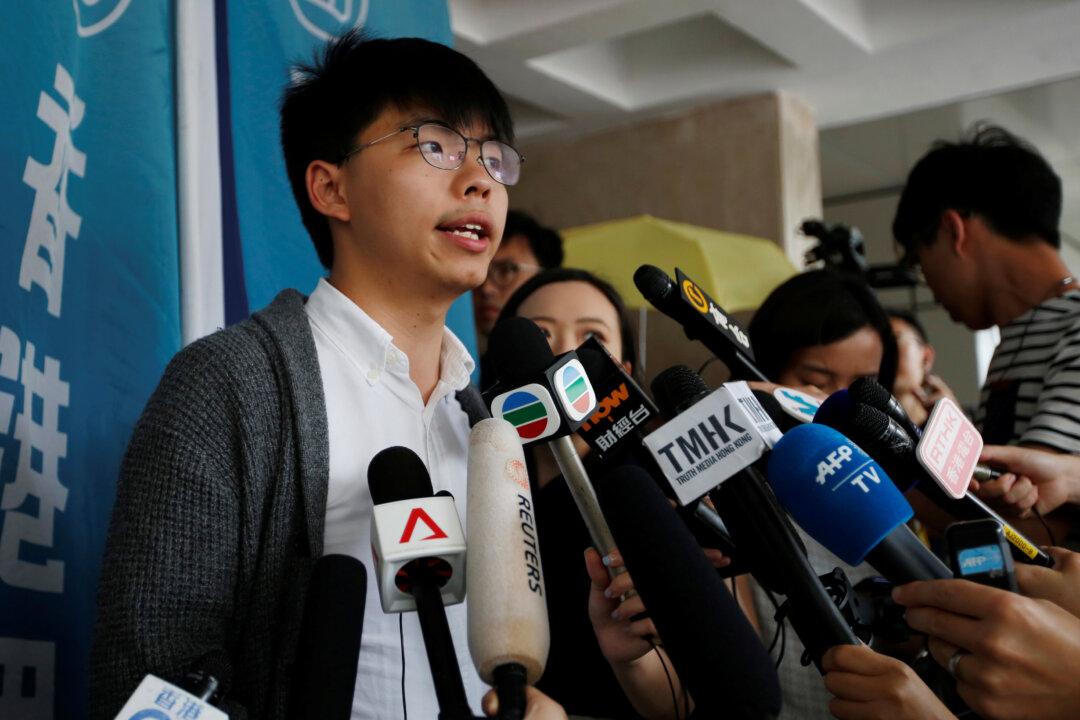HONG KONG—Hong Kong’s Court of Appeal sent a young leader of the Chinese-ruled city’s 2014 “Umbrella” pro-democracy street protests back to jail on May 16 for contempt of court, ruling out any motive other than ensuring a “deterrent sentence.”
Joshua Wong, 22, was sentenced to three months in jail in January 2018 for disobeying a court order and not leaving a protest zone during the rallies that blocked major roads in the Chinese-ruled city for nearly three months.





